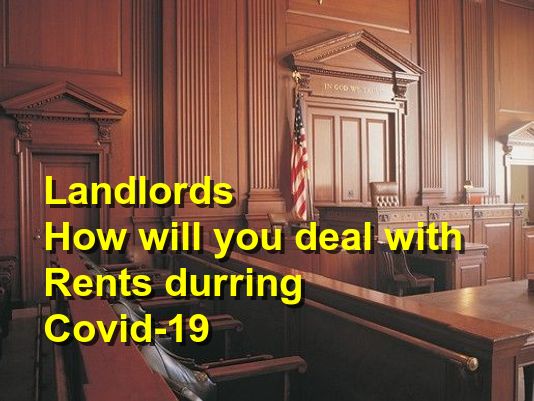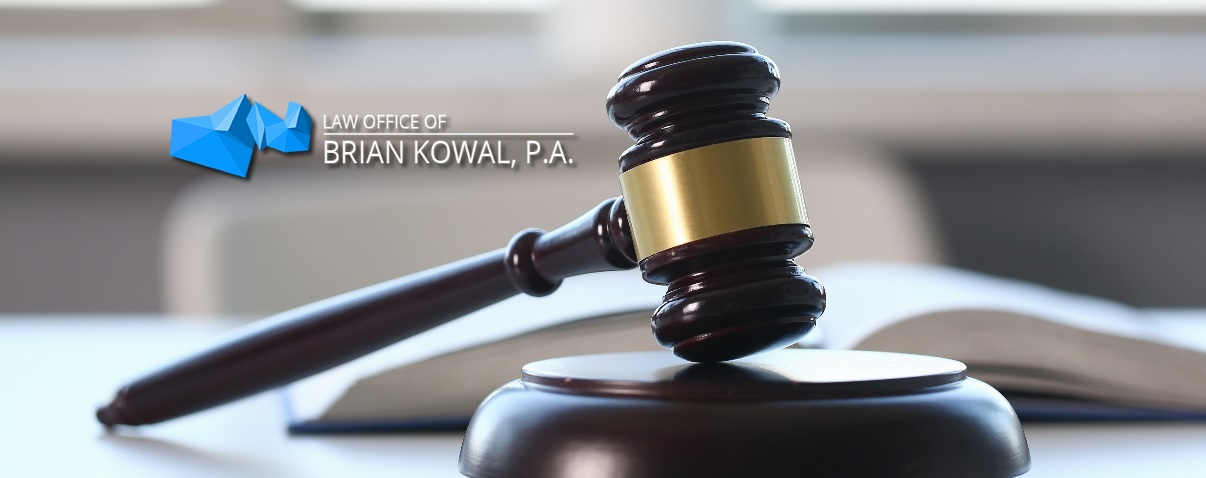The coronavirus pandemic is responsible for some of the most staggering unemployment numbers our country has ever seen. In the last week alone, 6.6 million people applied for jobless benefits, according to the Labor Department. That number is expected to increase, and the unemployment rate may ultimately reach 32%.
Even though the coronavirus has significantly altered most aspects of daily life, one thing that hasn’t changed is the cost of living. Though some workers are fortunate to still have their jobs, many will be forced to make tough decisions about which bills get paid.
Nearly 3 in 4 Americans report personal finance challenges as a result of the crisis, according to an analysis by data research startup Elucd. Seventy-two percent of Americans are unable to pay their expenses as normal, while 18% report being completely unable to cover their expenses this month.
For most, housing is the largest monthly expense. That means millions of Americans are struggling to come up with their rent for April and beyond.
Ashley Hubbard, a 33-year-old freelance writer and blogger, is one of them. She couldn’t afford her $1,365 rent payment for April and is worried things won’t look any better in May. As someone who primarily covers the travel industry, the Nashville resident estimates her income has decreased by 80% to 90% over the last couple of months.
“I had multiple campaigns I was working on either be canceled or postponed indefinitely,” she said. “One, in particular, was a yearlong technical writing contract set to begin right at the time everything happened and was canceled with no set date to pick it back up again. Many publications are no longer accepting pitches, which drastically has narrowed the pool of opportunities.”
Hubbard was able to work out a payment plan with her landlord for her April rent. However, the solution is only temporary. “They are offering to break up the payment into four payments over the course of April and May,” she said. Hubbard was allowed to choose the amounts and dates of the payments, but she must be squared up by the end of May.
“This helps somewhat, but only if I start making more money in the next couple of weeks. And as of now, May’s rent will still be due on May 1, which means I’ll basically be paying double in May. So it somewhat feels like I’m just postponing the problem.”
Governments Issue Eviction Moratoriums As Coronavirus Wreaks Financial Havoc
With so many tenants in Hubbard’s position, emergency measures to protect against evictions due to nonpayment of rent have been temporarily put in place.
On the federal level, as part of the newly enacted CARES Act, a 120-day moratorium on evictions and late fees was placed on federally subsidized housing and properties financed through Fannie Mae, Freddie Mac or the Federal Housing Administration. Unfortunately, this applies only to 12.3 million rental properties, or about a quarter of renters. Most rental properties are financed by private lenders and therefore don’t qualify for the aid.
And it’s tough for renters to know if they’re protected. “As a tenant, it’s almost impossible to know whether you qualify for the eviction moratorium because your landlord has a federally financed mortgage,” said Holden Lewis, home and mortgage expert for personal finance site NerdWallet. “Your lease doesn’t contain information about your landlord’s mortgage.”
The good news is, depending on your state, there may be local eviction moratoriums in place as well, according to Leslie Tayne, a debt resolution attorney and author of the book “Life & Debt: A Fresh Approach to Achieving Financial Wellness.” “At least 34 states have put eviction moratoriums in place, some banning all evictions for the time being while others only if the tenant has been diagnosed with COVID-19,” she said.
For example, New York Gov. Andrew Cuomo suspended evictions for residential and commercial tenants affected by the coronavirus for 90 days. “Now housing courts are closed…. You cannot be taken to court for nonpayment of rent for the duration of the COVID-19 crisis, and you cannot be evicted for the duration of the COVID-19 crisis,” said Celia “Cea” Weaver, campaign coordinator for the Upstate-Downstate Housing Alliance, who led the push for Cuomo to issue that moratorium.
The problem? Once the moratorium is up, there’s nothing in place to prevent landlords from then pursuing legal action for nonpayment. “It’s scary, but that’s what we’re working on right now,” Weaver said. “How we respond to the fact that nobody can pay their rent sets the tone for what an economic recovery could really look like.”
The end goal, she said, is to bail out people and not banks.
Similarly, in California, there is a moratorium on evictions for failure to pay rent through the end of May. “The moratorium only applies to tenants who are unable to pay rent due to a financial issue caused by the coronavirus,” said Paul Mankin, a consumer protection attorney in San Diego. For example, tenants must have lost their job, had hours reduced, become ill or have an immediate family member who is ill and must be cared for in order to qualify.
Tenants also have to write their landlord within seven days of rent being due, declaring their inability to pay and providing an explanation as to why. “I suggest tenants write the same letter in May if their financial situation has not improved,” Mankin said.
Dozens of cities have adopted similar measures, and some have put even stronger protections in place than the state. In Oakland, California, for instance, the Keep Oakland Housed program provides $2.5 million in emergency financial assistance, legal representation and more to local tenants.
Does This Mean You Don’t Have To Pay Rent?
Though there are various eviction moratoriums in place, there is currently no national or statewide rent freeze or executive order stating that tenants are not responsible for paying rent, according to Samuel Evan Goldberg, a tenant attorney with Goldberg & Lindenberg, P.C. in New York City. That means even if you are protected against eviction, you still have to pay up at some point.
“A moratorium isn’t a pass to skip paying rent,” Tayne said. “It means that your landlord cannot sue you for nonpayment or pursue the eviction process while the moratorium is in place.” The burden of responsibility still falls on the renter to work out a payment plan and eventually repay what they owe.
Mankin added that the expectation is tenants will have a reasonable amount of time to do so. As of now, however, there are no guidelines as to how long a reasonable amount of time is.
Is There Any Relief For Landlords?
Collin Crook, a San Francisco Bay Area resident who owns a rental property in Portland, Oregon, is beginning to feel the pinch from the other side. Crook said he rents to a couple who own a food truck and catered to both corporate and individual customers before the pandemic struck. “Their revenue… evaporated in less than 48 hours,” he said.
Crook explained that it’s critical for tenants who can’t pay rent to communicate with their landlords early and often. “They most likely hold a mortgage and need to make payments each month, too.”
Failing to receive rent payments for April and beyond could lead to the inability of some landlords to pay the utility bills for their units. And as more tenants lose work and fall further behind financially, it will create a snowball effect.
The stimulus bill does allow landlords of multifamily properties with federally backed mortgages to get a break on making payments if they promise they won’t evict their tenants. Again, however, this protects only a fraction of properties. And though private lenders have been urged to suspend mortgage payments and foreclosures on rental properties, local officials don’t have the authority to force them to do so.
Still, some banks are willing to be flexible. Crook said he holds two mortgage loans ― one for his primary residence and one for his rental ― and both banks have reached out to offer financial assistance. “Your landlord probably has the means to delay payment via their lender, and they should offer you the same flexibility,” he said.
Crook added that even though both tenants and property owners are facing an unprecedented situation, it’s landlords who ultimately took on risk and chose to leverage themselves and their liquidity to own property. “Just because the markets tank, or global pandemic hits and you never thought it could happen, does not absolve you from that,” he said. “Far too often, I see those in the position of privilege forget this.”
What To Do If You Can’t Afford Rent Payments
Even so, landlords also have bills to pay, including property taxes, insurance, wages for property managers and maintenance workers, and invoices for repairs. “If you can afford to pay your rent, either fully or partially, keep in mind that some of that money will go toward paying fellow working people,” Lewis said. In other words, if you can afford to pay rent, you should.
If, on the other hand, you’ve lost income in the last couple of months and covering your rent isn’t a possibility, there are a few steps you should take.
First, find out if your state or city has an eviction moratorium. Each city and state has its own guidelines, so be sure you understand the rules before you skip your payment. “The coronavirus has put a lot of hardworking Americans in a tough financial situation, so keep in mind that as the epidemic progresses, it’s likely that we’ll see more laws put into place to help those that lost their jobs avoid eviction,” Tayne said.
If you have a pending eviction notice, Tayne recommends contacting the agency listed on the warrant to make sure it is aware of any eviction moratorium in place.
In the meantime, it’s a good idea to discuss your concerns with your landlord. “Try to work out a payment that makes sense for you and that the landlord is willing to accept during this time,” Tayne said. You should also regularly check the Department of Housing and Urban Development’s rental help resources for each state.
If you own a small business, Mankin said, you could consider applying for a Small Business Administration disaster loan. “These loans are fairly easy to qualify for and are approved quickly,” he noted.
“For others, there really aren’t a lot of great options out there in terms of accessing money,” Mankin said. You might be tempted to turn to risky payday lenders or car title loan companies as a means of quick cash, but Mankin warned that these options are incredibly expensive in the long run.
For now, you may have a stimulus check to rely on for temporary financial assistance. But depending on where you live, that may or may not cover even one month’s rent. As the pandemic continues and financial fallout intensifies, more will need to be done.
“The reality here is that this is the definition of kicking the can down the road,” Weaver said. “It’s really postponing a crisis; it’s not solving it.” There will still be millions of people who can’t afford to pay their rent, regardless of whether or not they can be evicted, she said, and that problem isn’t going to go away when the threat of the virus has lifted.

We provide and help with eviction’s in every State. Many Landlords and Managers own or manage properties that are leased to tenants in exchange for monthly rental fees. Some have an effective rental plan; but what do you do when the Tenants don’t pay the rent? or break the rules defined in the lease?
Companies can be hired to carry out the duties often associated with landlords, such as rent collection and maintenance. It is here that we help property owners and investors with evictions when there is a Non Paying Tenant in your properties. NationalEvictions and our protections help you with evictions for your properties. Learn the Eviction Process, Find the Forms you will need in an Eviction, Search for Companies on our Directory: Law Firms, Process Servers, Court Services and Filing companies all of them are ready to help.
 Pursuant to North Carolina law with the eviction process, a landlord may, following successful judicial proceeding, forcibly evict a tenant seven days after the filing of a writ of possession. North Carolina provides four instances in which a landlord may institute eviction proceedings against a tenant: non-payment of rent, a holdover tenant situation, material breach of the lease agreement by the tenant, or drug trafficking and other criminal activity by the tenant. If one of these specified grounds exist, the landlord must then service the tenant with a notice of the eviction. The notice may give the tenant a time period to cure the violation depending on the ground for eviction. For example, in a non-payment of rent circumstance, the landlord must serve the tenant with a notice of eviction and the tenant has ten days to pay the rent. If the tenant does not comply within ten days, then the landlord may institute eviction proceedings. Landlords: Need help with an Eviction? Need us to help you File
Pursuant to North Carolina law with the eviction process, a landlord may, following successful judicial proceeding, forcibly evict a tenant seven days after the filing of a writ of possession. North Carolina provides four instances in which a landlord may institute eviction proceedings against a tenant: non-payment of rent, a holdover tenant situation, material breach of the lease agreement by the tenant, or drug trafficking and other criminal activity by the tenant. If one of these specified grounds exist, the landlord must then service the tenant with a notice of the eviction. The notice may give the tenant a time period to cure the violation depending on the ground for eviction. For example, in a non-payment of rent circumstance, the landlord must serve the tenant with a notice of eviction and the tenant has ten days to pay the rent. If the tenant does not comply within ten days, then the landlord may institute eviction proceedings. Landlords: Need help with an Eviction? Need us to help you File


















